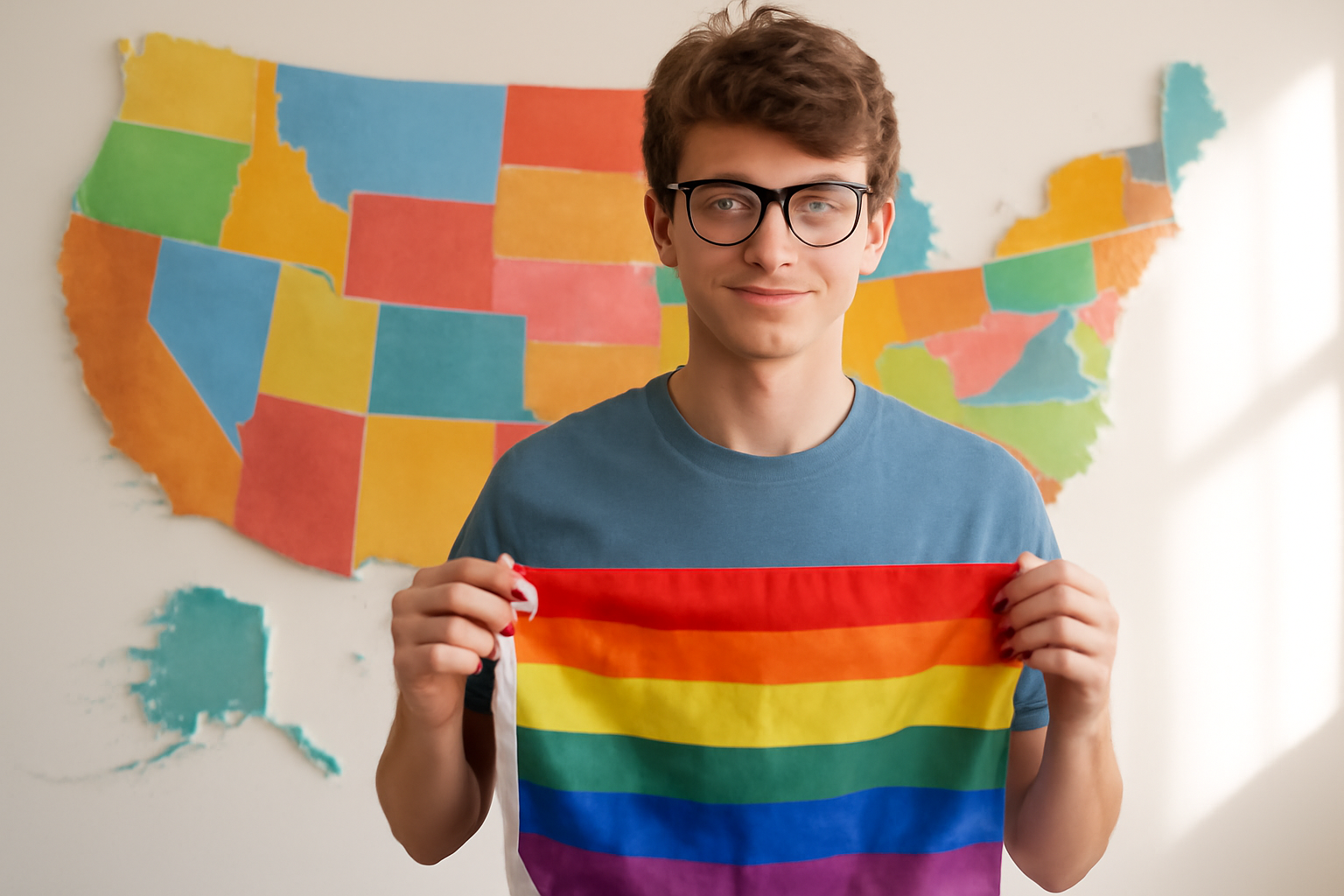
In recent years, there has been an increasing focus on how state-level policies impact the lives of LGBTQ+ individuals, particularly young people. A new study reveals a significant trend: stricter anti-LGBTQ+ laws and policies in certain states are prompting many young LGBTQ+ individuals to consider relocating to more inclusive environments.
Understanding the Current Landscape
As states across the country adopt various approaches toward LGBTQ+ rights, a clear divide has emerged. Some states have enacted policies that protect and empower LGBTQ+ communities, offering inclusive protections in areas such as employment, education, and housing. In contrast, other states have introduced laws that are viewed as discriminatory, including restrictions on gender-affirming healthcare and limitations on LGBTQ+ discussions in schools.
The study, which surveyed young LGBTQ+ individuals aged 18 to 24, found that those living in states with restrictive laws often feel marginalized and unsupported. This lack of acceptance and the constant threat to their rights and well-being lead many to contemplate moving to states where they can live openly and authentically.
The Impact of Anti-LGBTQ+ Policies
Anti-LGBTQ+ policies can have a profound impact on the mental health and overall well-being of young people. The study highlights that respondents in states with such policies reported higher levels of stress, anxiety, and depression. They often cited fears of discrimination in their daily lives, whether it be at school, work, or within their communities.
These negative experiences contribute to a climate of fear and insecurity, pushing individuals to seek safer and more accepting environments. For many, the decision to move is not just about seeking better opportunities, but also about finding a place where they feel valued and free to express their identity.
Seeking Acceptance and Support
For those considering relocation, the primary motivator is the desire for acceptance and support. States with comprehensive anti-discrimination laws, visible LGBTQ+ communities, and supportive policies in healthcare and education are seen as havens for young LGBTQ+ individuals.
These states offer environments where individuals can access necessary resources, connect with like-minded people, and participate in communities that celebrate diversity. The presence of LGBTQ+ centers, pride events, and supportive schools can make a significant difference in the quality of life for these young people.
The Role of Community and Advocacy
Community and advocacy groups play a crucial role in supporting LGBTQ+ youth, both in states with inclusive policies and those with restrictive laws. These organizations provide essential services, such as legal advice, mental health support, and community-building activities.
By fostering a sense of belonging and security, these groups help mitigate some of the negative impacts of discriminatory policies. They also advocate for policy changes at the local and state levels, working toward a future where all youth can thrive regardless of where they live.
Looking Ahead
As more young people consider relocation in response to state policies, there is an urgent need for continued research and advocacy. Understanding the long-term implications of these migration patterns and their impact on both individuals and communities is crucial.
Ultimately, the goal is to create a society where all people, regardless of sexual orientation or gender identity, can live safely and freely. Encouraging inclusive policies and challenging discriminatory laws will be key in achieving this vision.
In conclusion, the study underscores the importance of supportive environments for LGBTQ+ youth. By acknowledging the challenges they face and working to address systemic inequalities, we can help foster a society where everyone can flourish.
Related Posts
Triumphant Trans Woman Wins Legal Battle and Inspires Others to Stand Up for Their Rights
Breaking new ground: a landmark victory in transgender rights After battling in courtrooms and enduring endless challenges, Diana Portillo, a transgender woman, has secured a monumental victory in her decade-long fight against workplace discrimination. The result? Nearly $1 million awarded in a historic settlement. But this isn't just a win on paper—it represents a powerful precedent in combati [...]
Pride Month in Latin America: Protests and Demands for Equality
**Celebrating Pride and advocating LGBTQ+ rights in Latin America** Pride Month in Latin America was a lively mix where celebration met activism. Communities united, not just throwing a party but making a stand—demanding equality and pushing governments toward better protection and rights recognition. Throughout Latin America, pride events erupted in marches and cultural displays, each with a c [...]
Transgender Erasure Actions Implemented by National Park Service
```html Trump administration's impact on national park service and transgender recognition The Trump administration made notable moves in undermining transgender representation, which included directing agencies like National Park Service not include "T" and "Q" when they refered “LGBTQ” in any official communication. This move seems part a broader plan by this administration aimed at reducin [...]